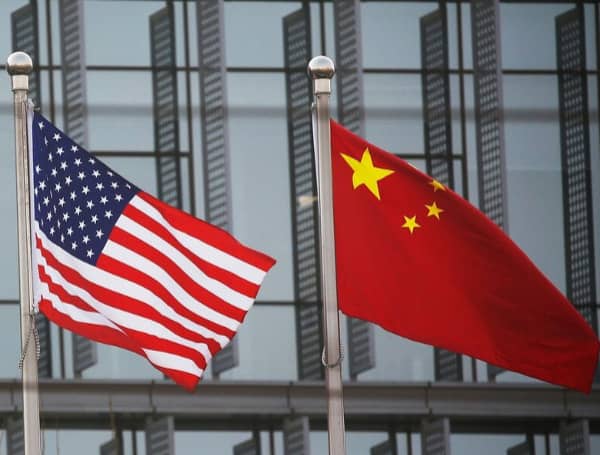The United States has approved a nearly $2 billion arms sale to Taiwan, including three advanced National Advanced Surface-to-Air Missile Systems (NASAMS) and supporting radar systems, to enhance Taiwan’s air defense capabilities.
Announced on October 26, this deal is the largest of 17 U.S. arms sales to Taiwan under the Biden administration. The sale includes AN/TPS-77 and AN/TPS-78 radar systems and aims to strengthen Taiwan’s defenses against potential aerial threats.
READ: Israeli Strikes Targeted Key Iranian Military Infrastructure, Disrupt Ballistic Missile Production
The Chinese Ministry of Foreign Affairs condemned the sale, stating it violates the one-China principle, infringes on China’s sovereignty, and threatens peace across the Taiwan Strait. China’s Foreign Affairs spokesperson urged the U.S. to halt its support for Taiwan, warning of “all necessary measures” to defend its national security.
Taiwan Affairs spokesperson Zhu Fenglian echoed this, accusing Taiwan’s administration of relying on U.S. support to pursue independence, which she argued would escalate tensions.
The NASAMS systems, expected to be deployed around Taipei, will replace Taiwan’s older HAWK surface-to-air systems and offer enhanced mobility, unlike the fixed Tien Kung systems.
Though the NASAMS has a shorter range than Taiwan’s domestically produced Sky Bow I and II, its truck-mounted design makes it more versatile for defense positioning. Taiwan’s air defense also includes mobile Patriot missile batteries with a range of 160 kilometers, effective against various aerial threats.
READ: Israel’s October 25 Airstrikes Severely Weaken Iran’s Air Defense, Says Netanyahu
In related developments, a delegation from Taiwan’s Penghu Islands, led by Penghu Cross-Strait Exchange Association Chairman Chen Shuang-chuan, met with China’s Taiwan Affairs Office (TAO) Director Song Tao in Beijing to negotiate the release of a Taiwanese fishing captain detained by China since July.
The delegation also aimed to discuss reopening tourism between China and Penghu, which has been restricted since 2019. Song Tao emphasized adherence to the “1992 Consensus” for peaceful cross-Strait relations and criticized Taiwan’s Democratic Progressive Party for its separatist stance.
Despite these efforts, China’s official readout did not address the detained captain, focusing instead on the call for restored tourism and peaceful relations.
Please make a small donation to the Tampa Free Press to help sustain independent journalism. Your contribution enables us to continue delivering high-quality, local, and national news coverage.
Android Users: Download our free app to stay up-to-date on the latest news.
Connect with us: Follow the Tampa Free Press on Facebook and Twitter for breaking news and updates.
Sign up: Subscribe to our free newsletter for a curated selection of top stories delivered straight to your inbox.

